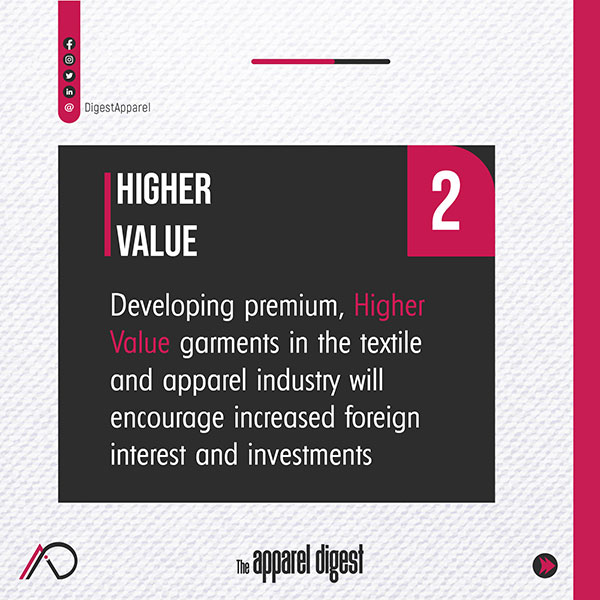In an effort to make the textile industry in Denmark more circular, the Danish Ministry of the Environment has announced a sectoral agreement that will be implemented within the fashion and textile industry. The agreement will require companies to recycle and use more recycled materials by the year 2030.
Ten Danish apparel and textile firms, such as Ganni, Bestseller, and Aiayu, as well as three Danish organisations, have committed to working together to drastically minimise the industry’s impact on the environment via the implementation of circular agreements.
The move is a reaction to the rising demand for clothes and textiles in Europe, where it is estimated that the typical person buys 15 kg of clothing and textiles each year. The move comes as a response to this rising demand. Due to the fact that this number continues to rise, the Ministry of the Environment has requested that the participating enterprises guarantee that their textiles and clothing are constructed to last as long as possible and include at least forty percent recycled material by the year 2030.
Lea Wermelin, the Minister of the Environment for Denmark, issued a statement in which she said: “Our consumption is much too high, and as a result, we are wearing down the little resources that our world has. The manufacturing of clothing and other textiles is widely recognized as one of the sectors that inflicts the most damage on the global environment. It is imperative that we move away from the mentality of “use it and then toss it away,” which is typical of the modern fashion business.
“It sends a message that reverberates across the industry and worldwide when Danish textile firms, both big and small, commit to reducing their impact on the environment and climate. It is imperative that Denmark take a leading role in the transition to a more environmentally friendly fashion and textile sector.
The person in charge of the sector partnership will be Maria Glaesel, who is the director of the fashion brand Aiayu.
Glsl continued by saying the following in reference to her appointment and the endeavour: “It is essential that we steer the industry in the same general direction, which is why I am honoured to have been chosen to serve in this capacity as the front person. My hope is that we will be able to persuade members of the industry to work together toward a shared objective and share their experiences in a way that will ultimately result in action.
“Only by working together will we be able to overcome the significant issues that are affecting the sector. Due to the fact that the transition will also include the implementation of structural adjustments, it is essential for the sector that the minister backs it. I am pleased to be at the forefront of a cross-sectoral partnership that may assist us in making a coordinated transition to a circular economy. The Minister of the Environment is the one who came up with the idea for the cross-sector collaboration, and the Lifestyle & Design Cluster will serve as the secretariat to put up an action plan, gather data, and take care of the steering group’s needs.
Aiayu, Bestseller, DK-Company, Salling Group, Ganni, JYSK, Dansk Wilton, Mammut Hoffmann, Trendsales, Green Cotton, Dansk Mode & Textile, Wear/Dansk Erhverv, Lifestyle & Design Cluster, and Milk Styrelsen are some of the participating businesses and organisations who have joined up.
Beginning in the year 2023, it is envisaged that Norway, Sweden, and Finland will become involved in the sector partnership.
Reference:
Wightman-Stone, Danielle. “Denmark’s Ministry of Environment Wants Companies to Embrace Circularity.” FashionUnited, 10 Aug. 2022, https://fashionunited.com/news/fashion/denmark-s-ministry-of-environment-wants-companies-to-embrace-circularity/2022081049107.
Image Courtesy:
https://fashionista.com/2017/02/copenhagen-denmark-travel-fashion

